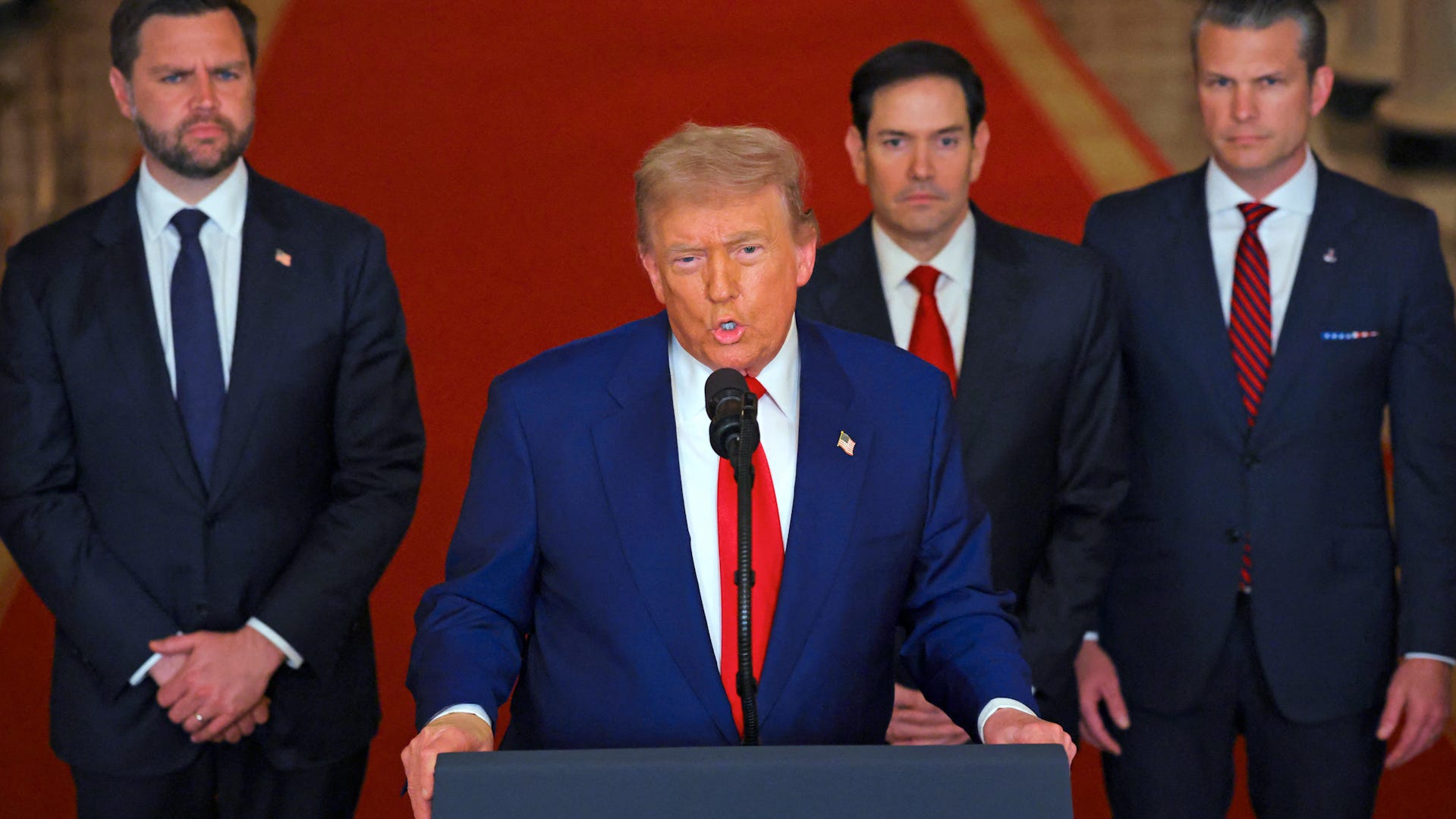'Perilous hour': World reacts after U.S. bombs Iranian nuclear sites

- US bombs three major Iranian nuclear sites, joining Israel's war with Iran.
- Trump said the strikes "totally obliterated" Iran's nuclear enrichment facilities. There's been no independent assessment.
- Many world leaders called for the US to de-escalate; a few condemned the strikes.
Israel hailed President Donald Trump's decision to bomb three Iranian nuclear sites as an action that would "deny the world's most dangerous regime the world's most dangerous weapons." But the United Nations and many countries around the world called for swift de-escalation while others criticized the attacks.
Trump said that the strikes June 22 "totally obliterated" Iran's nuclear enrichment facilities and that Iran had to "make peace" or face more, "far greater" attacks. In response, Iranian Foreign Minister Abbas Araqchi warned of "everlasting consequences."
A recorded statement from Israeli Prime Minister Benjamin Netanyahu congratulated Trump for taking what he described as a "bold decision" that "will change history."

The reaction from other world quarters was more restrained and called for Iran to return to the negotiating table.
British Prime Minister Keir Starmer acknowledged that Iran's nuclear program was a "grave threat to international security." He also said a "diplomatic solution" was needed to "end the crisis." Japanese Prime Minister Shigeru Ishiba said it was "crucial" there be "a quick de-escalation of the conflict." The European Union's top foreign policy official, Kaja Kallas, urged "all sides to step back, return to the negotiating table and prevent further escalation."
There were stronger words from longtime U.S. adversaries Venezuela and Cuba.
Cuban President Miguel Díaz-Canel characterized the U.S. bombing as a "dangerous escalation" that "seriously violates the U.N. charter and international law and plunges humanity into a crisis with irreversible consequences."
Yvan Gil, Venezuela's foreign minister, said his country "firmly and categorically condemns the bombing."
U.N. Secretary-General Antonio Guterres said he was "gravely alarmed" by the use of U.S. force on Iran.
"There is a growing risk that this conflict could rapidly get out of control − with catastrophic consequences for civilians, the region, and the world," Guterres said in a statement. "At this perilous hour, it is critical to avoid a spiral of chaos. There is no military solution. The only path forward is diplomacy. The only hope is peace."
Trump's decision to directly attack Iran alongside Israel comes more than a week after Israel started attacking Iran with a view to destroying its nuclear enrichment facilities. He did so without congressional authorization.
There has been been no independent assessment of Trump's assertion that U.S. bombers destroyed Iran's three major nuclear sites at complexes in Fordow, Natanz and Isfahan.
"Now that the strikes have come, Tehran faces a stark dilemma: retaliate and risk a wider war, or pause to consolidate at home," said Burcu Ozcelik, a senior research fellow in Middle East security at the Royal United Services Institute, a London think tank that specializes in military affairs.